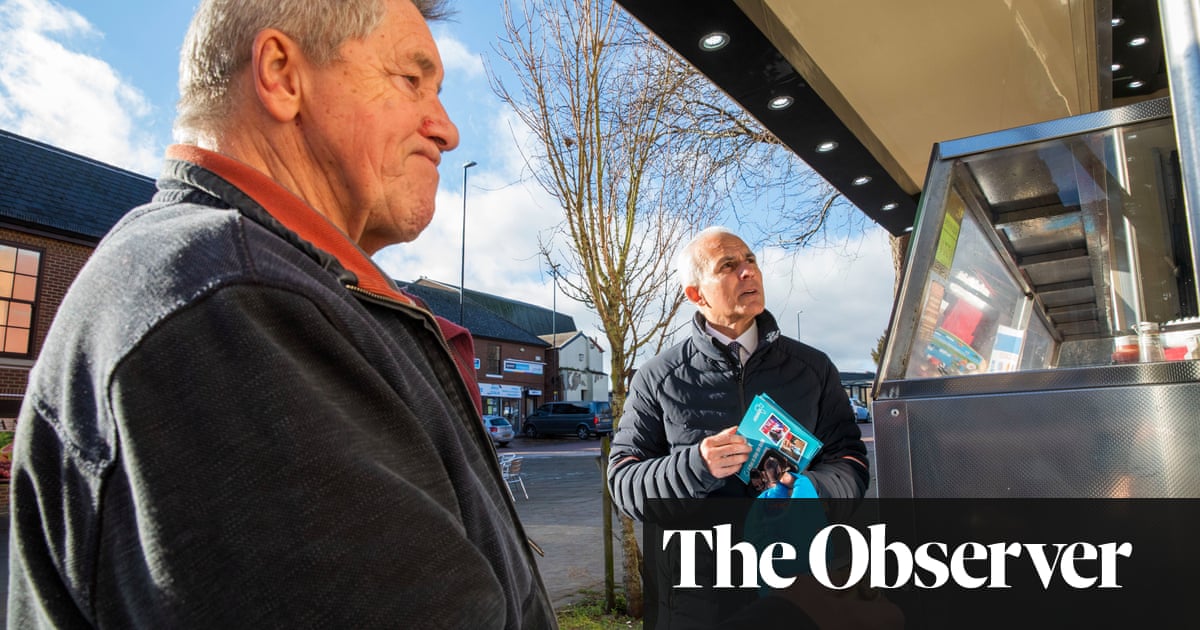
Within hours of their landslide victory this summer, Labour MPs had already begun discussing how to counter the threat from Reform UK. Nigel Farage’s party had won five parliamentary constituencies and 14.3% of the vote. Keir Starmer’s strategists see this resurgence of Faragism as arguably their biggest electoral challenge.
That threat has been made more acute by Donald Trump’s victory in the US this week. Buoyed up by his ally’s triumph, Farage has set his sights on a new UK target: the Senedd elections in the spring of 2026.
The reason is simple. Reform has performed best in parts of northern England and southern Wales that have suffered historic under-investment and where there is disillusionment with the two main parties. Of the 98 seats where Farage’s party came second in July, 60 were in the north of England and 13 were in Wales. This, combined with the fact that the elections use a more proportional voting system, means conditions are ripe for Reform to do well.
“It’s very smart for Reform to target Wales,” said Luke Tryl, the director of the More in Common polling consultancy. “What has been Reform’s biggest challenge to date – having reasonably high electoral support but very inefficiently distributed – doesn’t matter so much because they will be rewarded for share of the vote rather than where those votes are.
“There are lots of Welsh seats which are very similar to the ‘red wall’ seats where Reform also do well and in many cases have emerged as the main challenger to Labour.”
Labour is divided over how best to respond, particularly since Farage’s response to the stabbing attack at a dance class in Southport in August. The Reform leader helped whip up unrest by giving credence to claims there had been a cover-up by authorities: in videos to his 2 million followers on social media, he questioned “whether the truth is being withheld from us”.
Starmer and other senior Labour ministers refused to explicitly criticise Farage’s remarks at the time. Proponents of this approach argued that attacking Farage directly risked turning him into a sort of martyr – and driving more disillusioned voters to Reform.
But others counter that ignoring Farage won’t make him go away. “We’ve got to tackle it head on and expose their agenda for being what it is – opportunist, nasty, distasteful,” a Welsh Labour MP said. “Farage should be held more accountable for the hatred during the riots. He got away with it, and he never should be allowed to get away with it.”
What Labour still lacks is a strategy for winning back those who have voted for Farage, or are tempted to. “The people who follow him are obsessional. You can’t reason with them,” the same MP said. “What they’ve read on social media becomes fact.”
Polling suggests that Reform could pick up between 14 and 17 of the 96 Senedd seats, and there is an outside chance they could beat the Conservatives to second place. But the danger for Farage and his party is that unless they significantly professionalise their operation and weed out extremists from their ranks, achieving greater prominence could actually damage them. The party had to disown several of its election candidates this summer for having far-right links or making racist remarks.
“When Ukip and other smaller parties have made breakthroughs into other national parliaments or into local government, it hasn’t always worked very well – there have been some high-profile fallouts, rows, which could potentially damage their brand,” Tryl said.
“It also forces them to take a position outside some of their core areas. We know the biggest driver of the Reform UK vote is migration – but if you’re going to be a party which is aiming to have a significant presence in the Senedd you need to have a set of policies on a whole lot of other things.”
Finally, there is a question over whether Trump’s victory in the US will lead Farage to focus more of his energies there – at the expense of less glamorous campaigning in former coalfields across the south of Wales.












